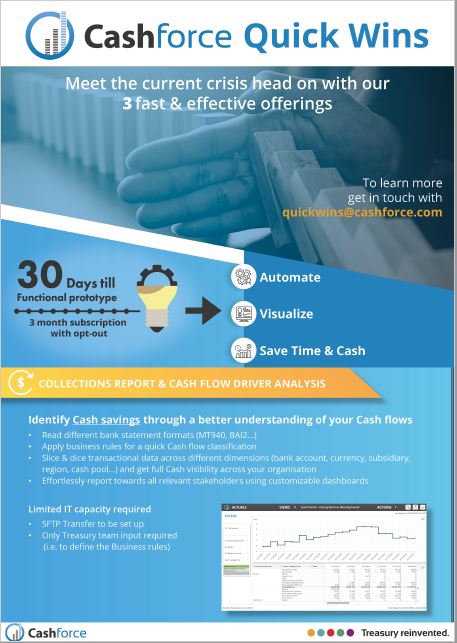08-07-2020 | Niki van Zanten
Let’s start by mentioning a phrase that I hear regularly and, to be honest, also use myself: ‘I am not an accountant, but…..’.
The urge to mention this phrase (usually targeted to an accountant while having an ‘I know it better’ attitude), can perhaps be traced back to the following reasons:
- Discrepancies between accounting and real economics;
- The fact that some (from my perspective, way too many) companies are run by accountants and numbers;
- Historically absurd requirements in terms of hedge accounting*.IFRS on paper brought some relief but the old FAS and IAS standards were over the top accounting driven without a mere grasp of the real world.

The first point could already result into great discussions. As companies are expected to adhere to certain accounting standards, these standards represent the objective part of these discussions. This results in real economics claiming an underdog position.
If companies have to choose between compliance on one hand and doing what works best economically on the other hand, the way to find the right balance is by training accountants about real economics. Many individuals working in treasury have an accounting background, which could be beneficial if that individual takes the economic approach and uses accounting knowledge convince business partners.
Let’s jump into some basic examples where accounting doesn’t reflect economic reality:
- IC (inter company) bookings where the transaction is not reported in the same currency at both ends
Entity A (EUR Functional) has a receivable of 1 Mio EUR and entity B (USD Functional) has a payable of 1.1 Mio USD. The Historic rate was 1.10 and cash flow occurred in USD. Entity A decided to book in EUR to avoid any FX reporting. The consequence is that there is indeed no FX exposure visible. However upon settlements all FX results suddenly appear.What a nasty surprise!
- Re-measurements not done at correct rates
The best indication for FX effects in your books is obtained when the applied rates are close to the market rates. As you know there are many different sources for markets rates. The awareness of this fact is not visible in accounting.
- Forward points not segregated
If you do not segregate forward points in PL, you can have FX results when the currency in question does not move. That just sounds very strange to me and this also touches upon a bigger issue, namely the allocation of result on PL. In the case your FX does not land in a segregated PL line, or worse non-FX related results end in your FX PL,
this usually does not change the total PL. However this makes it extremely difficult to control FX results, as you need good exposure information as well solid controls in terms of realized results. Segregation of realized and unrealized FX is also a very helpful tool for the Risk manager.
Are companies run by accountants?
That question should be discussed over a beer or glass of wine. Right now, I will limit myself to some pointers on how to identify whether a case could be identified as an accounting issue or economics issue. It is actually very simple and should be done by treasurers and financial controllers, before any discussion occurs on what the actual problem is.
By comparing the accounting steps for each of the proposed solutions with the trades, you can identify where market risk arises and where accounting risk. The one can see that thes are not always the same. Furthermore, it might also be a good time to call for a specialist, if the right level of comfort is not met. This way of working also fits well with the absurd requirements of hedge accounting.
Regarding this topic, ask yourself whether you really need to apply hedge accounting. From my experiences, in most cases hedge accounting is applied only for one reason; to reduce the PL volatility in between hedging and the moment of cash flow for forecasted transactions. (especially true for listed companies).Taking an economic perspective, there is no benefit in hedge accounting at such a significant cost in terms of audits and administration . Hence, determine how high the cliff is, before you dive down into hedge accounting procedures.
Conclusion
In a perfect world with only blue skies and where work consists of having margaritas on the beach, there are no accounting requirements (and probably also no FX to manage). In our world, the same feeling can be obtained by making sure that the accounting for FX reflects economic reality as much as possible. Thisby applying the accounting standards as a framework. Furthermore take into account what level of known discrepancies between the economic and accounting reality you are comfortable with.
*Please note hedge accounting and accounting for FX are not the same. By accounting for FX I mean the accounting entries done by non-local or group currency items. These can be invoices in different currencies or intercompany bookings. Hedge accounting is only linked to deferring derivative MTM on the balance sheet as opposed to PL immediately.
I am curious about your thoughts. Please comment…

FX specialist























